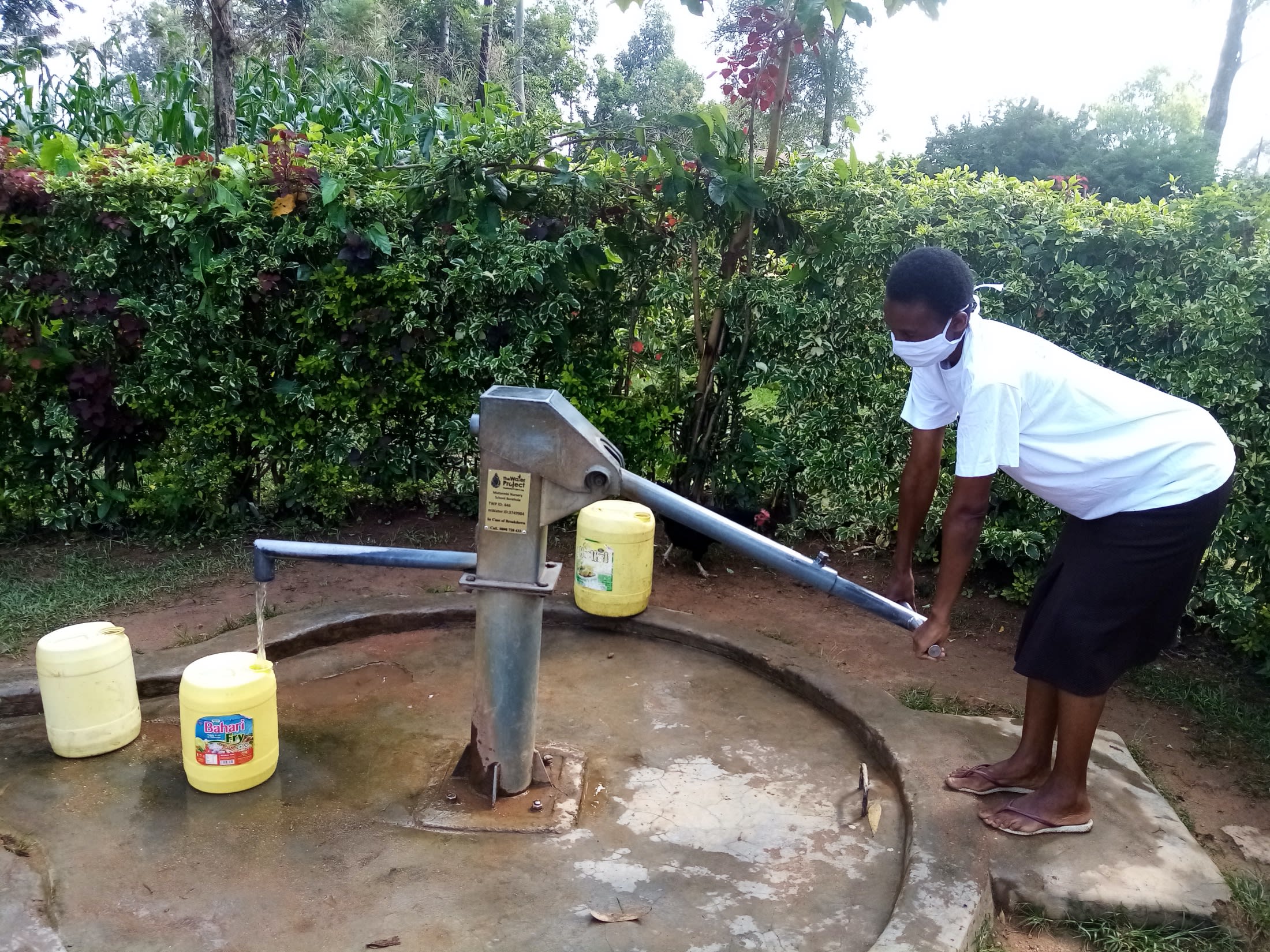July, 2020: Through Their Eyes: COVID-19 Chronicles with Ruth Vuyanzi
This post is part of a series by The Water Project meant to highlight the perspectives and experiences of the people we serve and how the COVID-19 pandemic is impacting them. We invite you to read more of their stories here.

Ruth Vuyanzi with her children
"As soon as I heard about the coronavirus outbreak in Kenya, I made a leaky tin and bought liquid soap at the market. I placed these near the pump so that all the water users would wash their hands before touching the pump handle to access water," said Ruth Vuyanzi, a 53-year-old farmer in Shikungula village.
Like many Kenyans, life for Ruth has changed significantly since the first case of COVID-19 in the country. The country's schools are closed for the rest of 2020, so her children are now home and unable to engage in distance learning. Ruth makes money selling bananas in the local markets, but she is struggling to sell as much as she used to due to restrictions on markets and a national curfew. Her husband is a pastor, and he, too, is making less money as a result of the pandemic.
"We have a hard time putting food in the table," she said.

Ruth stands in her garden.
Our team recently visited Ruth to conduct a COVID-19 prevention training and monitor their water point at Mutsembi Nursery School. Shortly after, we returned to check in on the community, offer a COVID-19 refresher training, and ask how the pandemic is affecting their lives.
It was during this most recent visit that Ruth shared her story of how the coronavirus has impacted her life. Field Officer Joan Were met Ruth outside her home to conduct the interview. Both Joan and Ruth observed social distancing and other precautions throughout the visit to ensure their health and safety. She shared some hope that things are starting to get better.
"I'm happy about the new curfew, which was moved from 7:00 PM to 9:00 PM. This change has helped women who sell vegetables and fish in the evening make more sales and have ample time to get back to their houses before the curfew begins," she said.

Ruth fetches water at the well.
The Water Project is working to support people like Ruth by ensuring that each water point is functioning correctly. Access to water is crucial in the effort to prevent the spread of COVID-19. We also know that communities benefit from access to safe, reliable water.
"Before this water point was installed, a lot of time and energy was spent fetching water at a spring that is far from our homesteads," Ruth shared.
"This water is always available for refilling our leaky tins for regular handwashing that is important during this pandemic. We are glad to have clean water for keeping our clothes and other household surfaces clean."

Ruth and other community members at the COVID sensitization training
Access to water enables households to maintain handwashing stations. Ruth said that most homes here now have a dedicated handwashing station following the training that was conducted here on the steps needed to prevent the spread of COVID-19. She also said that people were not observing social distancing, so the training was a helpful way to encourage people to take the necessary steps to prevent spreading the virus.
"I'm happy that you came to train us on how to keep safe at the water point," she said.

 Borehole Well and Hand Pump
Borehole Well and Hand Pump
 Rehabilitation Project
Rehabilitation Project



















